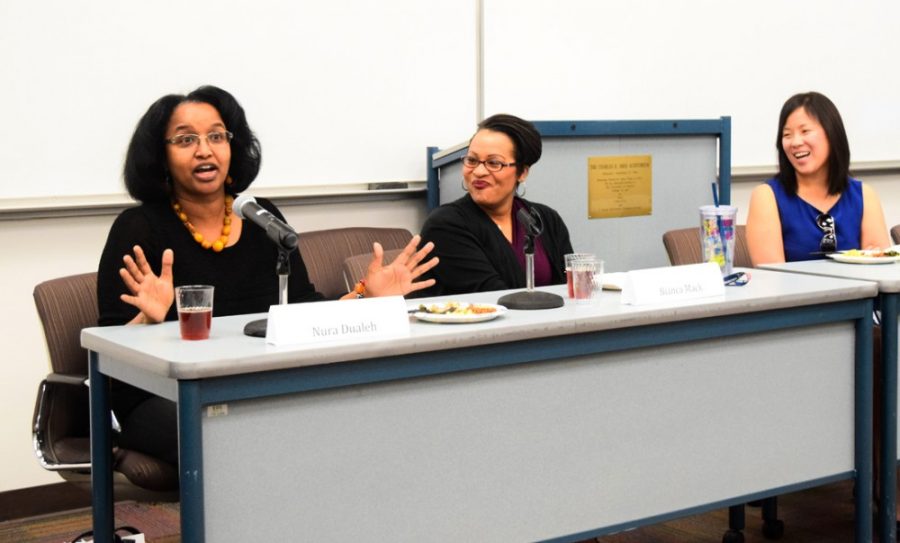The Black Law Students Association’s second installment to the Black History month panel series, “Diversity in Higher Education: The Admissions Process,” was held at the James E. Rogers College of Law on Wednesday.
Bianca Mack, a panelist and the assistant dean for admissions and financial aid, talked about the increase in diversity at the UA. She said there were students originating from “24 states and 24 countries” attending the UA.
Additionally, the panelists discussed the UA’s recognition for having the most Native American students and the development of the UA/Alfred P. Sloan Indigenous Graduate Partnership. Its scholarship is an addition to the Office of Scholarships and Financial Aid and an attempt on behalf of admissions to make education more accessible to diverse groups.
This type of financial aid was called a means to “build the pipeline,” according to Nura Dualeh.
Dualeh, originally from Somalia and the director of the National Student Exchange Program, advised students to take advantage of “the power of volunteering … [and] of the journey you are on.”
Aaron Gbewonyo, a law student at the UA and member of BLSA, said diversity “as it pertains to minorities at this university is that we are underrepresented.”
“It is bigger than just the university,” Gbewonyo said. “It starts at the elementary school level. … By serving as mentors and assisting the youth in achieving their goals and understand the process, we will help to remedy the issue of under-representation.”
The BLSA team organized this panel to “provide insight into what potential applicants should take into account when considering attending grad school … [and] to discuss the impact of diversity in higher education and what administrators are doing to attract diverse applicants,” Gbewonyo said.
Wednesday’s panel also included Mimi Huang, the director of admissions at the College of Law.
Huang emphasized the importance of maximizing “every single break … [making] contacts … [and] [building] a body of experience.”
Dualeh also said students should portray themselves as authentic, powerful and persuasive in their applications.
Elizabeth Shulterbrandt, an American Indian Studies graduate student, said that on the surface, the UA “seems very diverse.”
On facing racial biases in education or any industry, Mack said that “you’re going to find that in every industry; you can’t let that stop you.”
The next BLSA panel, “Side by Side for Social Justice: Broadening Your View to see the Bigger Picture,” will be held at the College of Law on Wednesday in the Areas Auditorium from noon to 1:15 p.m.
_______________
Follow Terrie Brianna on Twitter.








